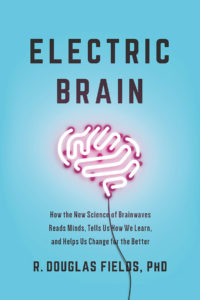Making Long-term Memories Depends on Making Myelin and Brainwaves
Neuroscientists have always presumed that learning and memory depend on strengthening or weakening the connection points between neurons (synapses), increasing or decreasing the likelihood that the cell is going to pass along a message to its neighbor. But recently some researchers have started pursuing a completely different theory that does not involve changing the strength of synaptic…
Read MoreThe Brain’s Clockwork
How many times a day do you check the time? Estimates are that people between the ages of 18-34 check the clock between 50-74 times a day! Staying in sync is essential for any complex system; whether it’s a machine, social organization, or transportation system, chaos would erupt if the intricate processes involved were not precisely coordinated in…
Read MoreElon Musk’s Brain-Computer Interface—Reality Check
The much-anticipated recent announcement of Elon Musk’s development of a brain-computer interface (BCI) device, called Neuralink, was a media sensation. The fact that Musk, a successful businessman who makes advanced technology a commercial reality, is investing in BCI is significant and newsworthy. This area of research has been around since the 1970s, and brain stimulation…
Read MoreFamily Separation Alters Electrical Activity in Teen Brain: Follow-up study on Romanian Orphans
The federal government has reported that nearly 3,000 children, as of January 2019, were forcibly separated from their parents migrating across the US border with Mexico and put into detention shelters or foster care. Much of what scientists know about how brain development in children is impaired by adverse early life experience comes from studies on…
Read MoreElectric Brain–Dedicated to my Father
After years of toil, typing and revising the manuscript, the day an author first sees their work typeset in the layout design for their new book is always a delight. Reaching that milestone, the effort transcends from intention to tangible. What was especially rewarding when I first saw the layout for my new book, Electric…
Read MoreLate Filing Taxes? Blame Your Brain
“I’ll do it tomorrow.” Right, but tomorrow never comes. There are many studies on the psychology of procrastination, but brain imaging is giving researchers neurological insight into procrastinators’ brains by revealing differences in brain structure in people who habitually put off doing things until the last minute. Don’t expect the IRS to cut you any slack if your…
Read MoreCBS 60 Minutes Sensationalized Report on a Sonic or Microwave Weapon Harming US Diplomats
On Sunday, March 17 2019, CBS 60 Minutes broadcast an alarming report on the Cuban/Chinese, sonic/microwave/neuroweapon attack on US embassy staff and their families. The report is an example of how a once credible press has been supplanted by tabloid sensationalism and fearmongering. The program featured interviews with staff and family members at the US…
Read MoreHumans Mated with Neanderthals–They Still Are
We know that Homo sapiens (meaning the wise one) co-inhabited the earth with Neandertals. What’s more, DNA analysis proves that men and women of both species (or subspecies if you prefer), mated. Of course, there was no Valentine’s Day back when the daily grind for a working man meant bringing down a woolly mammoth with a sharp stick.…
Read MoreSwitching Off Anger with an Electrode
Devonte Washington, 15, was waiting on the platform of a Washington DC Metro subway station with his mother and two sisters headed to a barber shop to get a haircut for Easter Sunday church service. The young man glanced up at a stranger, 17-year-old Maurice Bellamy, who instantly took offence–pulled out a .38 caliber pistol…
Read MoreHow Scientific American Magazine Helps Shape the English Language
It is fascinating to consider that there was a time when such commonly used words as “pre-heat,” “download,” and “phone,” did not exist. More surprising, perhaps, is that the first recorded use of these words in print, and 205 others in the English language, was in Scientific American magazine. That’s according to the Oxford English…
Read More







